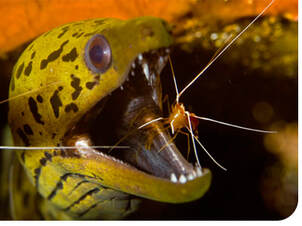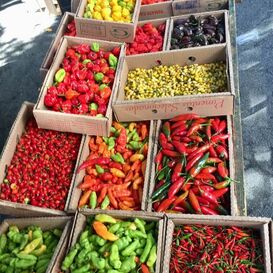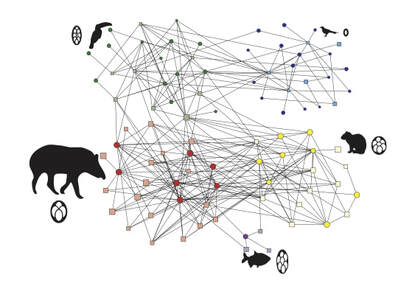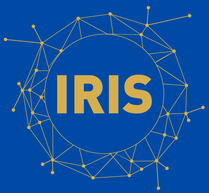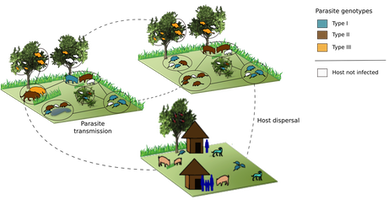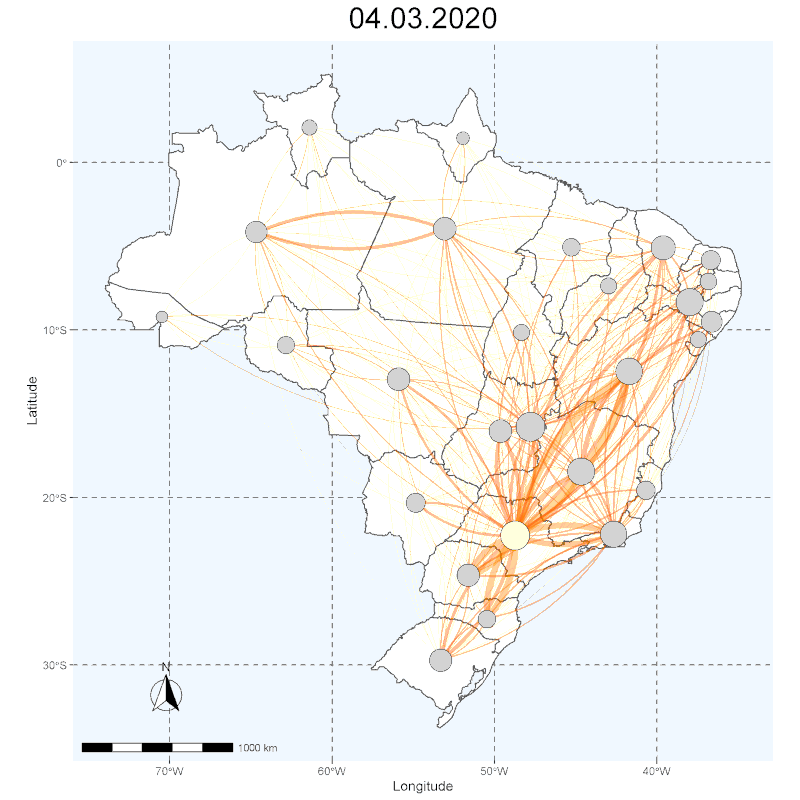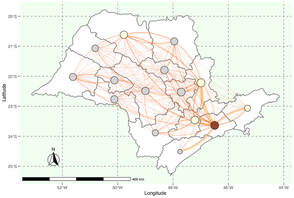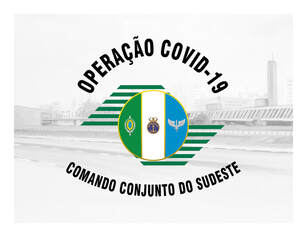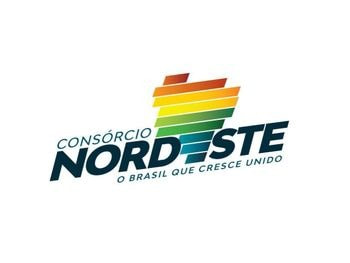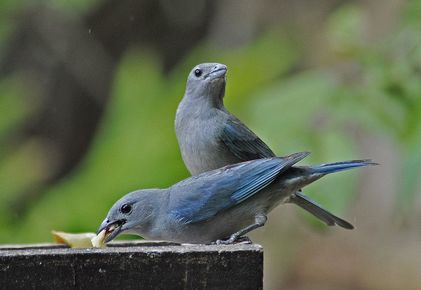Foto por Mathias Pires
Applied network science, datasets, and computer programs
Network science is a powerful approach to analyze disparate complex systems. Network description allows to visualize and describe the organization of large systems, to model its dynamics, and to explore its fragility against threats. Recently, we have been contributing to tackle different challenges to society by using networks. We contribute to these challenges by applying approaches derived to network science to problems involving food security & sustainability, disease spreading across space, and logistic optimization. We also host datasets of ecological networks, and develop computer programs to help in the analysis of any type of networks
Interaction Web DatabaseOur lab currently host the Interaction Web Database. A nonprofit, cooperative database containing published data on species interaction networks. The Interaction Web Database is a cooperative effort of scientists interested in the study of species interactions. The goal of the Interaction Web Database is to help disseminate ecological data on species interactions to be used for scientific purposes. The database is currently managed by Paulo R. Guimarães Jr, Rafael L. G. Raimundo (UFPB), Roberta Bonaldo (Natural History Brazil Produções), Lucas Camacho, and Mathias M. Pires (Unicamp). Diego Vázquez and Carlos Melián are part of our advisory board. We are extremely grateful to the researchers that through intense fieldwork have produced the datasets available at the web site.
|
Food securityWe are exploring how network science can be applied to build up sustainable food systems at different scales, from farm management at local spatial scales to global supply chains. Specifically, we explore how merging social, economic and ecological networks may help to create sustainable and resilient food systems. Our aim to optimize management of agricultural systems and its associated biodiversity. This project is led by Darren Evans, Mariano Devoto and Paulo R. Guimarães Jr. Funded by Royal Society Global Challenges.
|
Computer programsWe developed computer programs to facilitate the analysis of complex networks. Specifically, we have programs that compute key descriptors of network organization. Additional information here.
|
Resilience, Inclusion and SustainabilityWe are part of the working group IRIS - Inovação para Resiliência, Inclusão e Sustentabilidade. IRIS involves researchers from multiple institutions and we use quantitative analysis to promote theoretical synthesis and applications in the interface among biodiversity conservation, human development and the structuring of sustainable production networks. This group is lead by Rafael L. G. Raimundo and Cecília S. de Andreazzi.
|
Neglected tropical diseases Our aim is to improve the information on the biodiversity of pathogens and their hosts and the socio-economical determinants of public health in Brazil. In this context, we are promoting the development of predictive frameworks to support policies aiming to combat neglected tropical diseases. This project is led by Paulo Sérgio D'Andrea, Cecilia S. de Andreazzi, and Rafael L. G. Raimundo.
|
Disease spreadingWe organized a work group as part of the Observatório COVID-19BR initiative and in collaboration with the Brazilian Army (Coronel Eduardo Migon, Laboratório de Estudos de Defesa da Escola de Comando e Estado-Maior do Exército).
Specifically, we integrated different sources of information on people movement across space and network science to help to understand the spreading of SARS-CoV-2 across space in Brazil and its potential consequences. We also performed analysis to evaluate risks of logistical issues associated with SARS-CoV-2, such as the risk of collapse of the mortuary system of São Paulo city. Some of our reports are available here: [1], [2], [3], and [4]. We also created a website and a video to explain the importance of social isolation in a pandemics (both in Portuguese). Our analyses and reports were used by the Centro de Operações Integradas (Governo do Estado de São Paulo), Centro de Coordenação das Operações (Comando Conjunto do Sudeste, Brazilian army), Comitê Científico de Combate ao Coronavírus do Consórcio Nordeste, and the Grupo Gestor de Informações, Secretaria Municipal de Subprefeituras da Prefeitura de São Paulo. Participants: USP: Paulo R. Guimarães Jr, Ana Paula A. Assis, Danilo G. Muniz da Silva, Diogo Melo, Erika Marques Santana, Gustavo Burin, Kate P. Maia, Leandro G. Cosmo, Pamela C. Santana UFPB: Rafael Luís G. Raimundo, Viviana Márquez Velásquez FIOCRUZ: Cecília S. de Andreazzi Unicamp: Mathias M. Pires, Flávia Maria Darcie Marquitti UNESP: Marina C. Côrtes, Carine Emer UFSC: Mauricio Cantor University of California Merced: Irina B. Barros, University of California Riverside: Marilia P. Gaiarsa MIT: Lucas P. de Medeiros University of Chicago: Paula Lemos-Costa Instituto de Ecología Xalapa: Wesley F. Dáttilo da Cruz |
Natural History & scientific educationI created a website for teachers and children on the diversity of birds of São Paulo city. Additional information here, in Portuguese.
|
Artwork by Rodolfo G. Batista

